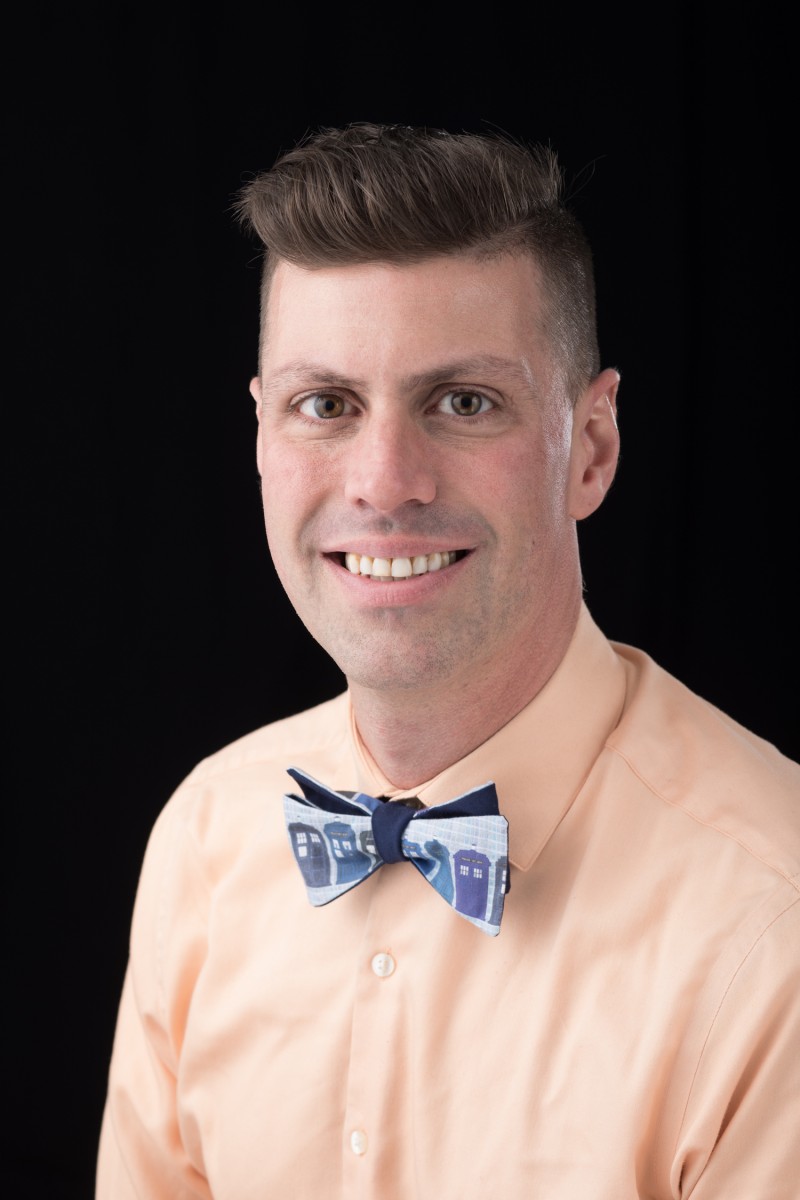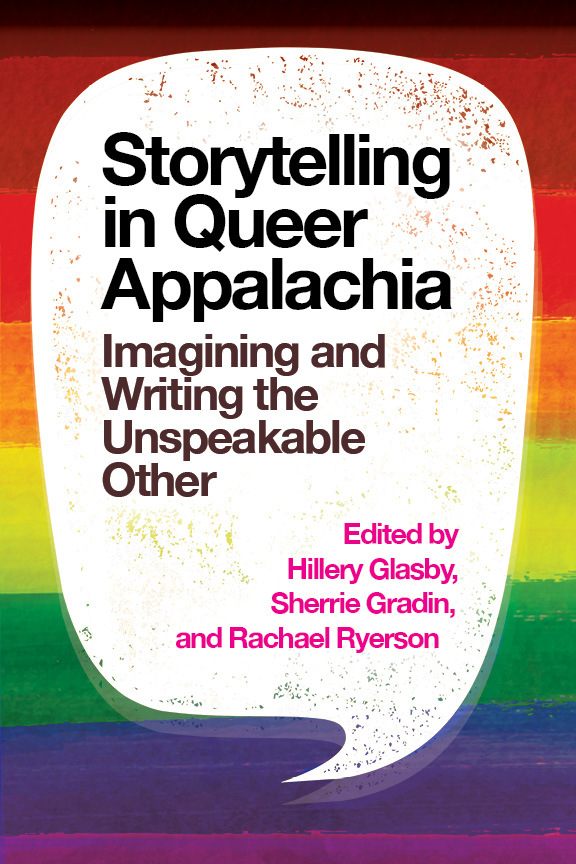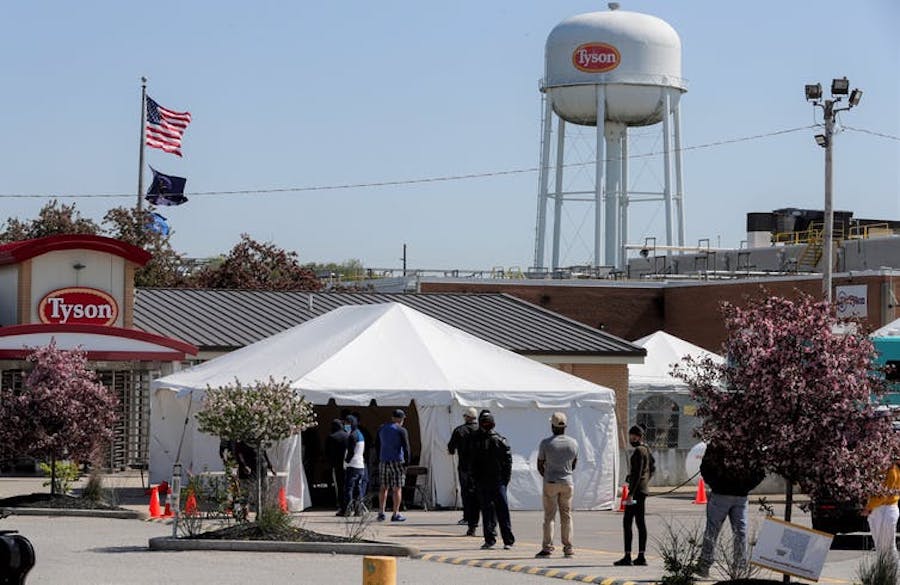One of the first collections of scholarship at the intersection of LGBTQ studies and Appalachian studies, Storytelling in Queer Appalachia, edited by Hillery Glasby, Sherrie Gradin, and Rachael Ryerson, amplifies voices from the region’s valleys, hollers, mountains and campuses. It blends personal stories with scholarly and creative examinations of living and surviving as queers in Appalachia.
Below is an excerpt from the collection, available now from West Virginia University Press, by contributor Matthew Thomas-Reid, written in collaboration with Michael Jeffries and Logan Land.
***
Down in the holler, I am a boy who is good to his momma: an eccentric who listens to classical music and brings a delicacy to every potluck. Being a boy good to his momma, I come from a tradition of the queer [phonetically kwar] in Appalachia. There is a rich history of the queer [kwar] in my community, from my lifelong bachelor great uncle to my father’s “rebel younger brother,” who died under unknown circumstances at the height of the AIDS crisis. Schooled in the southern Appalachian Brushy Mountains of North Carolina, queer [kwar] identity narratives abounded while queer [kwir] identities were marginal, simply too explicit to name in anything louder than a whisper.
Charlie [He/Him/His]
My Uncle Charlie was always queer [kwar], as far back as I can remember. He kept a weed whacker in the kitchen and a fifteen-year-old bar of Neufchâtel cheese in his refrigerator. He was many things: a southern bachelor gentleman in the vein of Tennessee Williams, a boy who was good to his mother, a cultured eccentric, and a grumpy old man. Uncle Charlie was many things to many people, but to my mother’s family he was just uncle Charlie and not in need of any other descriptor, as his identity was something known to all but veiled in terms that reduced his identity to a queer [kwar] archetype. To this day, people and actions are still described in my mother’s family as being “very uncle Charlie.”

While his later years are fairly easy to recount, his childhood and early adulthood are only really understood in small snippets of family lore drawn together over the rather straightforward facts about his life. He never married, and this short statement was all that was ever spoken about his queer identity—everything else was simply queer [kwar], odd, unusual, and eccentric. His life seemed fairly simple: he served in the navy as a switchboard operator in World War II, left the military, and repurposed his skill as a switchboard operator for Duke Power for nearly forty years, then retired to lead a quiet life with his church and spend time with myriad nieces, nephews, grandnieces, and grandnephews.
He was also a boy who was good to his mother. When his father passed away, his mother, called Mamma Sharpe by the family, came to live with him, and his social life essentially became bridge games with her and her friends. They lived together until she passed away, and her nightgown hung in “her room” until the day Charlie passed away. This momma’s boy persona was never lost on my mother, who in my early adulthood constantly worried that she might become my Mamma Sharpe, thus stultifying a more fully realized identity.
He was a cultured eccentric who collected opera records and candlewick crystal. After his mother died, his house, filled with curiosities and tchotchkes, became the family gathering spot for my mother’s family. Charlie took his place as family patriarch, though he never had any children of his own. My summers as a child at his house were filled with antiques stores, opera records, and Masterpiece Theatre on PBS. He was wise, funny, and quite the mentor for someone like me who also did not fit the mold of the Appalachian male.
But Charlie inhabited another queer [kwar] identity: he was a grumpy old man. You see, the danger with queerness [kwar] in Charlie’s case was turning him into something to be admired, a saintly man who followed the principles of his church and was good to his family. My father threw this at me years later when I came out to him, asking why I couldn’t just “be like Charlie” and take my place as the family’s lovable eccentric queer [kwar] (read: sexless) uncle.
As far as I can guess, Charlie possibly had a fleeting queer [kwir] identity as a young man, but he made a choice early on to “try really hard to be good,” as referenced in a letter to his mother just after World War II. My mother tells me he once spoke of being in love as a young man, but the conversation never went any further than that. The only definitive proof that Charlie was queer at all was my mother discovering a few 1950s-era muscle magazines in his closet in her youth.
Other than these little fragments, Charlie’s life was clearly quare, rather than queer; even the amusing story of him teaching my mother how to walk in high heels reeks of the quare—the off-kilter, strange, and even oddly amusing, but never quite queer [kwir]. Maybe the clearest example of this was a comment he made to me when we were at an antiques store when I was ten: I suggested that a naked statue was pornographic, and Charlie responded, “Does it turn you on? Because as long as it doesn’t turn you on it is art, not pornography.” As long as he denied the flesh being aroused, his “orientation” toward the world could continue to be queer [kwar], not queer [kwir].
Ricky [He/Him/His]
Ricky was the youngest of six siblings, born in an impoverished environment to a mother who was at the time estranged from his father, both of them much older. Ricky was firmly a Generation X child with siblings ranging from the GI generation to Baby Boomers. Given the fact that he was significantly younger than his siblings, Ricky was raised much like an only child, with his older siblings more like aunts and uncles swooping in from time to time with advice about his future. These childhood years were described in retrospect by his older brothers and sisters as a time that he was “babied” and “spoiled rotten.” The identifiers “spoiled,” “babied,” and “coddled” coalesce around the queer [kwar] identity “momma’s boy.” Being a momma’s boy in Appalachia contains many of the same identifiers that might be used elsewhere, but with a few cultural specifics tied up in the notion of masculine duty. Ricky never worked in the field priming tobacco like his brothers did; his youth was spent learning to play piano and reading books when many of his siblings never rose above functional illiteracy. As a momma’s boy, Ricky seemed to shun the practical world that his siblings inhabited in favor of impractical things of beauty and culture; music, art, and literature became his passions. His mother, my grandmother Annie, seemed to allow this exploration, but many years later seemed to lament indulging her youngest son. My mother distinctly remembers Grandma Annie warning her that “you can love a child too much.”
I had never really reflected on this admonition, but now I see it as a powerful connector to this notion of the queer [kwar]: boys in Appalachia were to be detached, wild, masculine, and naturally gravitating toward the male-dominated sectors of the culture. Perhaps my grandmother saw this same attachment to the feminine in me, the same queer [kwar] connections that existed between her and Ricky.

Ricky’s years after high school graduation (top of his class, I’m told) are somewhat more difficult to trace. According to the family, he was accepted at Juilliard to study piano, but was discouraged from attending due to finances and the lack of any practical application. My father often spoke of trying to talk Ricky into going to law school, only to become exasperated when Ricky refused. During the 1980s, in Ricky’s twenties, he disappeared from our lives for some time, living, I was told, in Charlotte, North Carolina. He gained work as a pianist for the upscale City Club for some time, as it was recounted to me.
As best I can guess, he lived as openly queer [kwir] during this period in his life. Years later, I met people in the gay community of Charlotte who remembered him vaguely; one man remembers playing with him occasionally as a part of an informal gay tennis club, another recalls him playing piano at a house party. At some point he met a young man from Sweden, but nobody associated with Ricky knows this young man’s name. The nature of their relationship (or whether they even had a relationship) is unclear. What I do know is that apparently Ricky contracted HIV from this young man.
I can put together Ricky’s next few years through vague memory; I was a preteen witnessing events I had no context for. I was only able to give meaning to these fragments of events in retrospect. Ricky moved back in with Grandma at the trailer park and back into my life. I got to know him during this declining period of his life, and these interactions formed a huge part of my early identity. My earliest memory of this time was being chastised by my grandmother for playing dress-up with her jewelry and having Ricky come to my defense. He argued that I had as much right as my female cousins to play with the jewelry, and I remember this being a bone of contention between him and my grandmother.
I would come over to the trailer, and he would make me cups of herbal tea with honey and lemon, and he would share pictures of famous artists and talk about how the impressionists differed from the expressionists, how the artists used color and composition to develop meaning in a painting. He would play the piano and let me sing along; he played everything from Peter, Paul, and Mary to musical theater standards, and I remember feeling so much more comfortable with him than with my other aunts and uncles—there was a softness, an approachability, a sparkle of intellect and culture in a world that lacked both.
These interactions did not come without reproach from other family members. I remember hushed-voiced conversations between my parents, aunts, and uncles whenever I spent time with Ricky. In particular, I remember a strange visitor from Sweden, Gudren, who played the piano and told stories of her home country while other family members looked on awkwardly. I remember my grandmother crying very hard that night, and in retrospect I think that was when she realized Gudren’s son had a relationship with Ricky, and Ricky had contracted HIV.
The memories became fractured after that: a hospital trip here, a hushed argument there, and everyone in my family slowly isolating Ricky. After developing what I know to be AIDS-related dementia, Ricky was committed to a state mental facility, where he spent his last months before he died; the family told everyone he had a brain tumor.
My memory of his funeral included seeing my father smoking the only cigarette I ever saw him smoke, my grandmother breaking down in the first pew of the church, and my uncle quoting verses from Romans to my mother while explaining to her that Ricky was in Hell. He had succumbed to the sins of the flesh; the queer [kwar] had become queer [kwir] despite the family’s best efforts to hide it, and the family silenced any further dialogue about it. That same year, my grandmother told me tearfully in her car on the way to the supermarket that Ricky was gay, and I had better be especially careful that I not make the same choices, otherwise I would share his fate.
***
Matthew Thomas-Reid (he/him/his pronouns) is assistant professor of Educational Foundations and affiliate faculty with Gender, Women’s and Sexuality Studies at Appalachian State University. Matthew is faculty advisor for GAPP (Gay and Progressive Pedagogy) and is editor of the South Atlantic Philosophy of Education Society Journal. His areas of research include philosophy of education, social justice education, and queer pedagogy. His current research projects focus on utilizing LGBTQIA histories and narratives with a view toward ‘queering’ pedagogy, praxis, and, most recently, digital literacies.
This excerpt was originally published by Booktimist, a blog about books and culture from West Virginia University Press.



